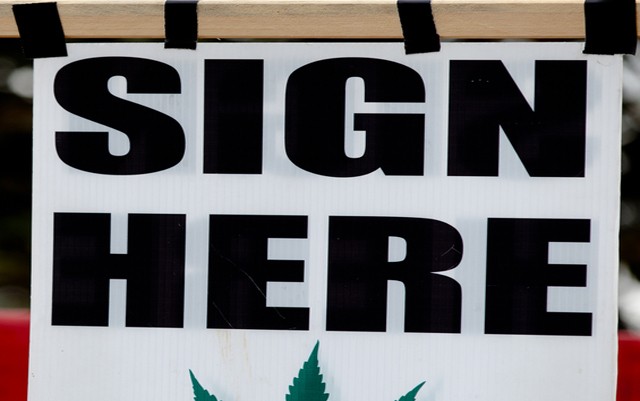Last week, MILegalize turned in 350,000 signatures to accompany their petition for a ballot initiative. With an additional 97,000 signatures on top of the required 253,000 to make the ballot, it seemed like they might actually have a decent shot. Unfortunately we all knew and were waiting for Governor Snyder to sign the bill which would possibly cause a large number of their signatures to be considered invalid.
Well, at the start of this week – regardless of the MILegalize campaign and others who have had to abandon their campaigns asking for him to veto – the Governor signed the bill, and the law has been applied retroactively, directly affecting the signature count of the campaign. After all of this, the Bureau of Elections has rejected around 106,000 signatures – 9,000 signatures short of qualifying for the November ballot.
“What this limit means is that only if you have a million bucks (to hire professional petition circulators) will you ever get anything on the ballot,” Hank said. “Voters across the political spectrum should be concerned,” he added.
“This isn’t just about marijuana. If people are upset about money and politics and special interests, this 180-day limit is guaranteed to give special interests even more power over our system and citizens less,” he said.
There will still be a final hearing this week to determine the validity of these signatures – but it is likely to be ruled in favor of the new bill being applied. After this hearing is when those running the campaign will be challenging the new law in court. If the courts decide to hear the case, we must hope that the court sees that a short timeframe to come up with hundreds of thousands of signatures, for a smaller group, is nearly impossible in only roughly six short months.
“This was expected — we will prevail,” said Jeff Hank, a Lansing lawyer who chaired the group.
“We expect the Board of Canvassers to continue to engage in poor government and to follow the staff recommendation (on Thursday), and we will file a lawsuit very shortly after that,” Hank said.
It’s always going to be a battle to get these kinds of amendments and referendums on the ballot – there are many states that are still conservatively run who will try and block the measure either directly or indirectly. But in the end, the issue will definitely make it to the ballot sooner or later. Hopefully, though, it will be 2016 for the state of Michigan and they will get to be one of the first states on the east coast to legalize, tax and regulate marijuana.






